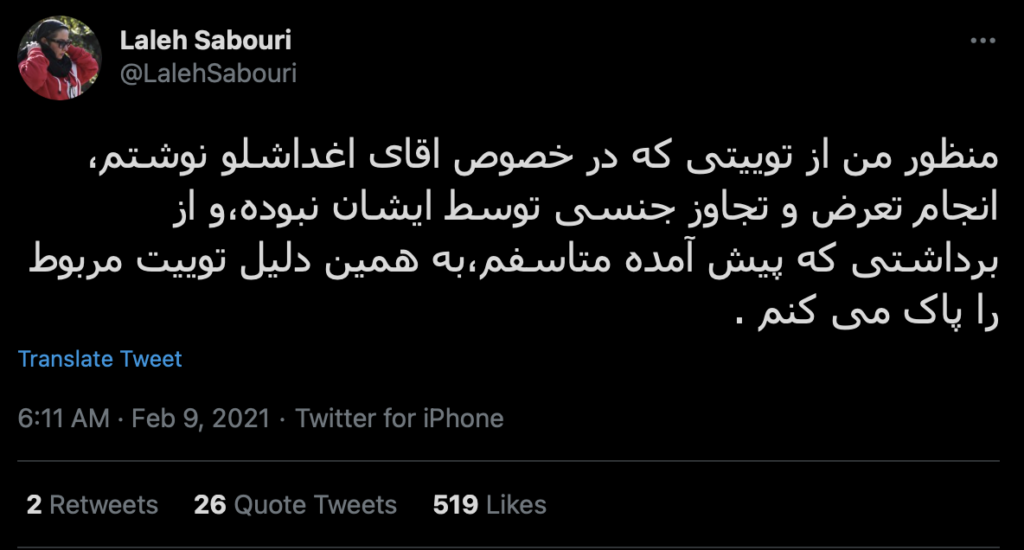One of the only named sources in the New York Times article, Solmaz Naraghi, has publicly stated that the reporter, Farnaz Fassihi, misrepresented her words.
A retraction was shared on Naraghi’s social media channels. As a result of this misrepresentation, Farnaz Fassihi added the word “verbal” to the abuse allegations in the Persian-language New York Times article. The correction was not called out in the Persian-language article and no similar edits were made in the English-version. Solmaz Naraghi was never sexually assaulted by Aydin Aghdashloo and Farnaz Fassihi grossly exaggerated the statements of Solmaz Naraghi (read about the supposed incident below).
